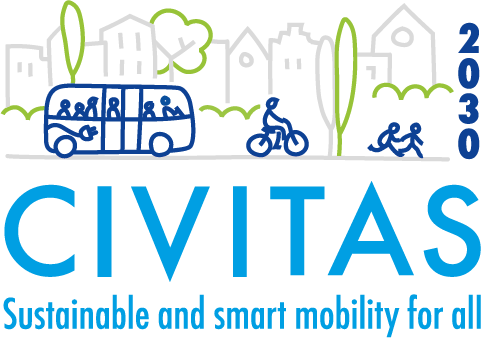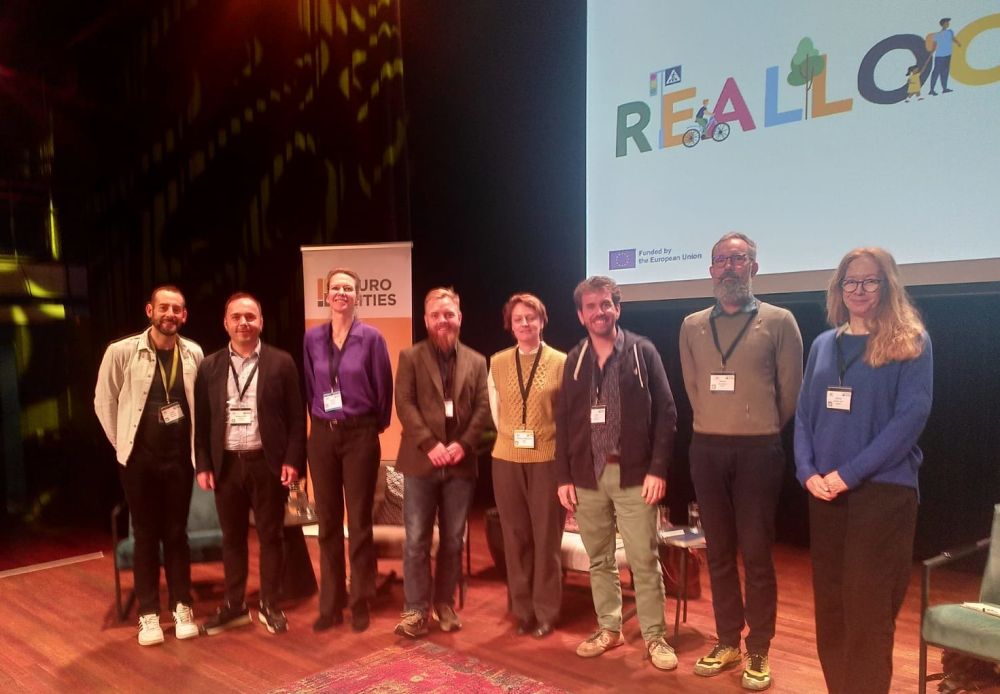
News
Radically Reshaping Urban Space at the Eurocities Mobility Forum
5 April 2024
‘Radically Reshaping Urban Space’ was the theme of this year's Eurocities Mobility Forum, which took place last month in Utrecht, Netherlands. If one thing was clear from the discussions over the three-day event, it was that we can't radically reshape urban space without making sure cities involve people and understand their needs. As Salma Belmoussa, an activist in Utrecht defending the rights of disabled people, pointed out, “by designing your city and how people move in it, you decide who can contribute to society or not”.
One of the essential aspects of mobility is the feeling of freedom and autonomy. “Our feelings dictate our behaviours, including how we move around our cities,” explained Melissa Bruntlett, Sustainable Mobility Consultant, Royal HaskoningDHV. For example, a cycling lane that is a shared space with cars that can drive as fast as 50km/h will bring up a fear response in some users, especially children, who won’t cycle on it. Some solutions have vital spillover effects. For example, Orrwa Alhaffar, an activist in Utrecht working with migrants, shared how learning how to cycle was a way for many migrants to “access and integrate the Dutch culture”. Usability, autonomy, and connection are core ingredients of more liveable cities. “We want to create ‘hi moments’,” insists Bruntlett, explaining that these driving principles will affect locals’ physical, mental, and social health, particularly that of children and older adults who may suffer even more from loneliness. “Quality of life is what we are giving back to people,” said Lot van Hooijdonk, Utrecht Deputy Mayor for Mobility.
Cities agree, yet they face concrete challenges to make everyone happy. Utrecht and Brussels highlighted how interests compete for limited city space and the challenges faced in reconciling heritage conservation and accessibility needs. “Public space is a commodity, and multiple needs require space: housing, green areas, transportation, commerce, etc.,” said Eva Oosters, Utrecht’s Deputy Mayor for carbon-free Mobility.
Public interventions in cities must look more and more at aspects such as multi-use public space redesign. This is where REALLOCATE made its mark, by focussing on how to explore approaches that combine policies targeted at traffic calming and improving mobility, reducing CO2 emissions, repurposing public space and street space reallocation. For instance, REALLOCATE partner, Barcelona, has focused on creating a green street network that prioritises pedestrians and connects neighbourhoods, and, within the project, the city is exploring how to face issues related to conflicts from different users sharing the same space. The city sought input from other cities facing similar problems during the forum's poster session.
The Eurocities Mobility Forum in Utrecht encapsulated the ongoing journey towards sustainable urban mobility. Through workshops, dialogues, and exploring existing mobility solutions, participants left with a reinforced commitment to creating greener, more inclusive cities. The insights gained, and the collaborative spirit fostered at the forum underscores the collective path forward in addressing urban mobility challenges.
Image: EUROCITIES
All news

This project has received funding from the European Union’s Horizon Europe programme under grant agreement No. 101103924. Views and opinions expressed are however those of the author(s) only and do not necessarily reflect those of the European Union or the European Commission. Neither the European Union nor the granting authority can be held responsible for them.


REALLOCATE is a project under the CIVITAS Initiative, an EU-funded programme working to make sustainable and smart mobility a reality for all, and contributes to the goals of the EU Mission Climate-Neutral and Smart Cities.
